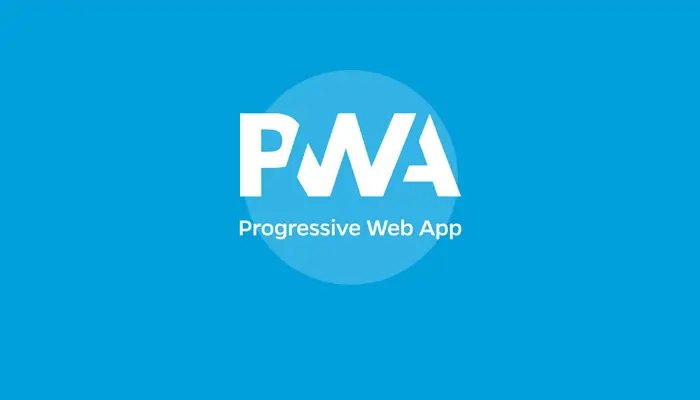
5G and Beyond: How Faster Mobile Networks Are Changing Digital Marketing
October 13, 2025
Edge Computing vs. Cloud Computing: What Marketers Need to Know in 2025
October 16, 2025Why PWAs are replacing native apps, and how brands can benefit from faster, app-like mobile experiences.
In 2025, the line between mobile websites and apps has almost disappeared, thanks to Progressive Web Apps (PWAs).
PWAs combine the reach of the web with the functionality of native apps, giving users a smooth, app-like experience directly through their browsers, no downloads required.
As more brands focus on performance, accessibility and engagement, PWAs have become a cornerstone of mobile strategy for designers, developers and marketers alike.
-
What Exactly Is a PWA?
A Progressive Web App is a web application built with standard web technologies, HTML, CSS and JavaScript, but enhanced with modern APIs to provide app-like capabilities.
PWAs can:
- Work offline
- Send push notifications
- Be installed on a user’s home screen
- Load instantly, even on slow connections
In short, a PWA feels like an app but behaves like a website.
Fact: According to Google Developers (2025), PWAs can improve conversion rates by up to 36% and reduce page load time by more than half.

-
Why PWAs Are Replacing Native Apps
Native apps require downloads, updates and storage space, PWAs don’t.
Here’s why businesses are switching:
- No App Store Dependency: Users can access the app directly from a browser link.
- Lower Development Costs: One PWA works across Android, iOS and desktop.
- Faster Updates: Any changes are instantly reflected for all users.
- SEO Benefits: Unlike native apps, PWAs are indexable by Google, boosting visibility.
Example: Starbucks launched a PWA that’s 99% smaller than its native app, allowing customers to order coffee even with weak connectivity. The result? Double the daily active users.
-
Key Features That Make PWAs Powerful
- Service Workers: Enable offline functionality by caching data.
- Web App Manifest: Allows users to “install” the app on their home screens.
- HTTPS Security: Ensures data encryption and reliability.
- Responsive Design: Adapts to any device, mobile, tablet or desktop.
PWAs support “Add to Home Screen” prompts, a simple but powerful feature that increases return visits and engagement rates.
-
PWA Success Stories: Who’s Leading the Shift
Global brands have already embraced PWAs as part of their mobile-first strategy:
- Pinterest: Their PWA led to a 60% increase in engagement and 44% growth in ad revenue.
- Uber: The PWA loads in under 3 seconds even on 2G networks.
- AliExpress: Conversions increased by 104% after switching from native apps to a PWA.
These case studies prove that PWAs aren’t a trend, they’re the new standard for mobile experiences.
-
Why PWAs Matter for Designers and Marketers
For designers, PWAs mean creating interfaces that blend the usability of mobile apps with the flexibility of the web.
For marketers, it’s about improving retention, engagement and SEO all at once.
Benefits include:
- Faster mobile UX → lower bounce rates.
- Offline accessibility → uninterrupted browsing.
- Push notifications → higher re-engagement.
- Installability → stronger brand presence on mobile devices.
Pro Tip: Combine a PWA with AMP (Accelerated Mobile Pages) for even faster load times and better mobile SEO.
-
The Future of PWAs in 2025 and Beyond
With Apple and Google both expanding support for Web App APIs, PWAs are becoming indistinguishable from native apps.
The next phase? AI-powered PWAs, apps that use AI for predictive content loading, personalized interfaces and real-time user adaptation.
Prediction: By 2027, more than 50% of consumer-facing mobile apps could be PWAs, according to TechCrunch projections.
Conclusion
PWAs represent the perfect balance between performance, accessibility and engagement.
For brands and creatives, investing in PWA technology means providing users with faster, seamless and more reliable experiences, without the friction of downloads or app store approvals.
In 2025 and beyond, the smartest marketers will treat PWAs not as an alternative to native apps, but as the future of the mobile web.
If you have any questions regarding “Progressive Web Apps” feel free to contact us. For inquiries and consultations, call us at: +92 321 4808303 or Email us at: hello@owaisgilani.com.
Disclaimer: The information shared on this website is for educational and informational purposes only and reflects my personal views and experiences. While I strive to provide accurate and helpful content, readers should use their own judgment and consult with a qualified professional before making any decisions based on the information here. I am not responsible for any actions taken based on this content. Feel free to reach out to me if you need clarification or have questions before using any part of this information.



